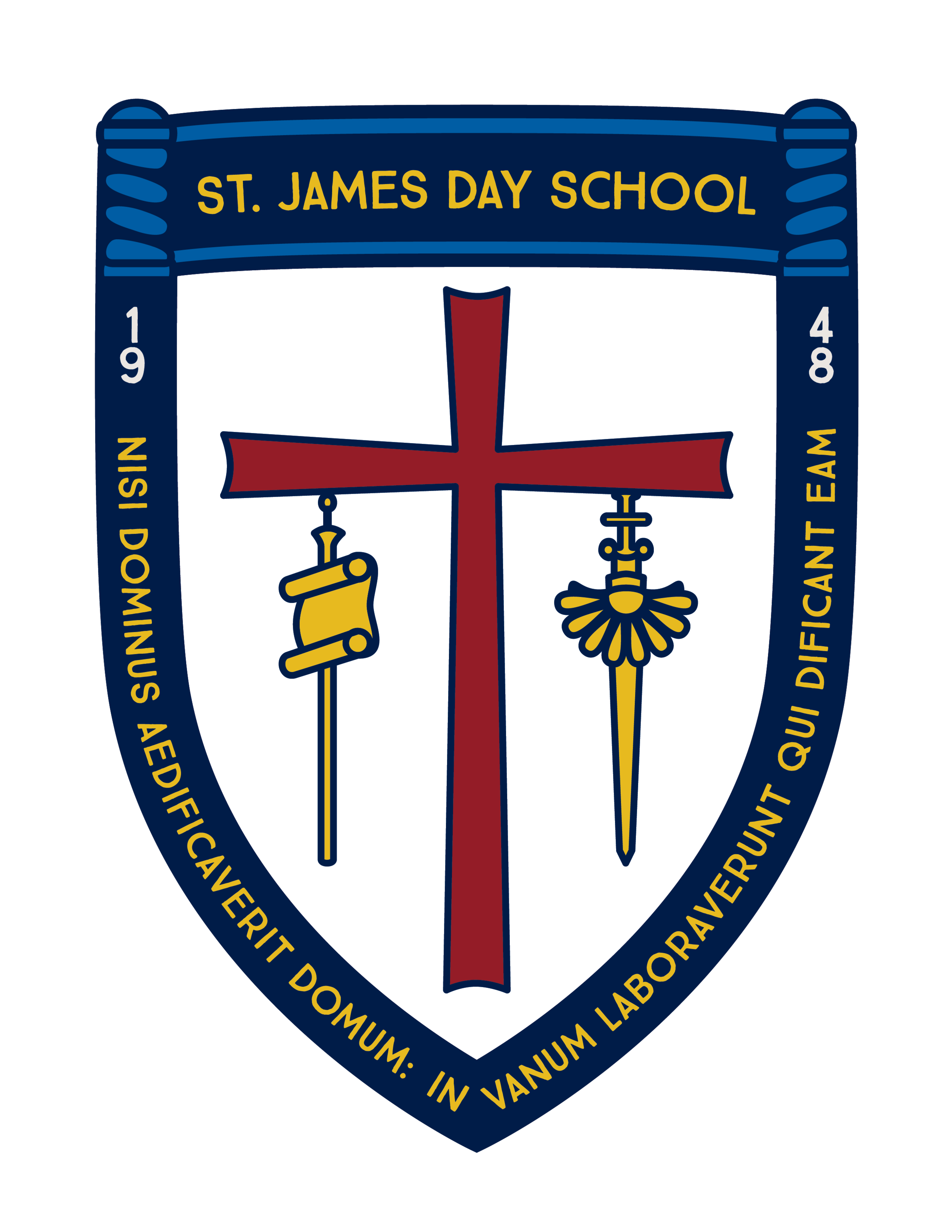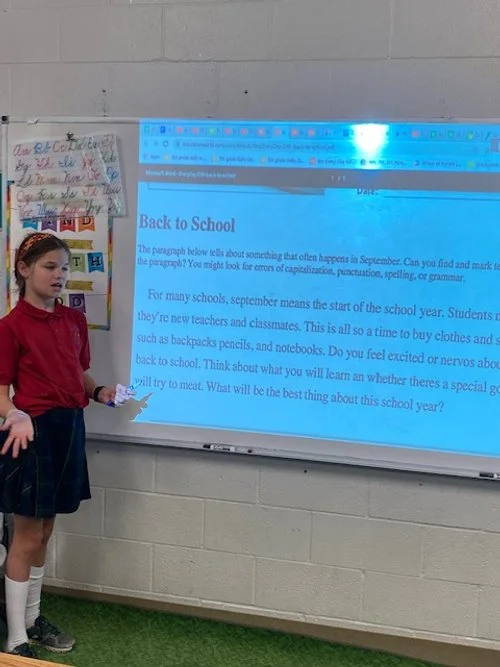By Susie Rogers, 5th-8th ELA
Teaching is the highest form of understanding.’ –Aristotle
Reviewing grammar concepts took a little twist! The students were asked to be the teacher and “show what they know!” Students first had to correct a paragraph with numerous errors on their own, and then they volunteered to come teach the class about one of the mistakes. Grammatical errors included spelling, their, they’re, there misuse, interrogative sentences, verb tenses, capitalization, and comma usage.
Students made the correction, and then explained the reasoning behind it! They always had a “tap-out” option if they got stuck! It has been proven that to know a concept is one level, but it can be temporary. However, if a student is able to teach the concept, that knowledge will not be forgotten.



















































